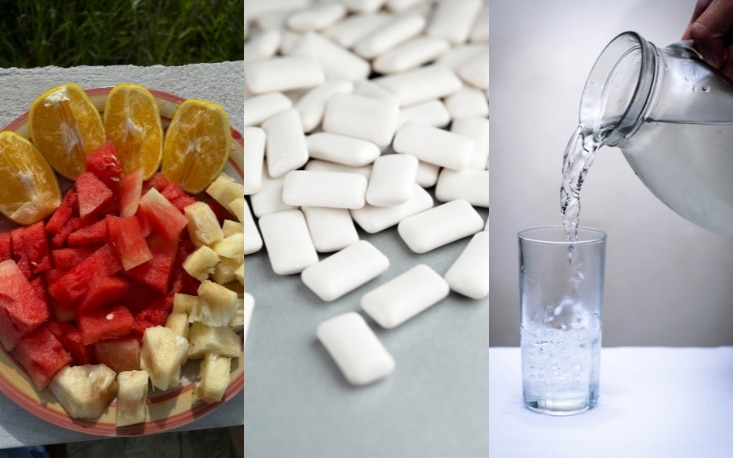
Dry mouth, or xerostomia, affects millions of people in the United States. It’s more than just a dry feeling—it can lead to difficulty speaking, eating, and even sleeping. In some cases, it increases the risk of cavities and gum disease due to a lack of saliva, which is vital for neutralizing acids and washing away food particles.
Saliva supports digestion, keeps oral tissues healthy, and helps prevent tooth decay. When it’s in short supply, it can impact daily comfort and long-term oral health. Thankfully, simple dietary changes and hydration habits can offer meaningful relief from dry mouth. This guide covers practical food and drink choices that help manage symptoms naturally and effectively.
Best Foods That Help Boost Saliva Production
Choosing the right foods can stimulate your salivary glands and help restore moisture. Avoid dry, salty, or acidic options that make dryness worse. Instead, opt for:
Moisture-Rich and Oral-Friendly Foods
- Soft fruits like watermelon, pears, and oranges help hydrate the mouth and supply natural fluids.
- Cucumber and celery contain high water content and support saliva production without irritating tissues.
- Oatmeal and steamed vegetables are gentle on the mouth and easier to chew and swallow.
- Smooth dairy products such as yogurt and cottage cheese soothe the mouth and help maintain moisture.
- Sugar-free popsicles or gelatin can temporarily ease dryness and encourage saliva flow.
Whole foods with a high water concentration support oral comfort while delivering essential nutrients.
Best Drinks for Hydration and Dry Mouth Support
Proper hydration is essential. Fluids not only help the body but also keep the mouth from feeling sticky and dry.
What to Sip and What to Skip
- Plain water is the best option—drink small sips frequently throughout the day.
- Herbal teas (like chamomile or ginger) can be soothing and non-irritating.
- Coconut water provides electrolytes without the added sugars of sports drinks.
- Avoid caffeinated drinks, alcohol, and sodas, as they can worsen dry mouth symptoms.
Hydrating the body consistently helps keep the salivary glands working throughout the day.
Other Tips for Relief from Dry Mouth
Besides foods and drinks, a few daily habits can make a big difference:
- Chew sugar-free gum with xylitol to trigger saliva naturally.
- Use saliva substitutes or mouth sprays recommended by your dental provider.
- Breathe through your nose instead of your mouth, especially during sleep.
- Keep a humidifier near your bed to add moisture to nighttime air.
Incorporating these methods helps relieve symptoms and improve oral comfort.
If you’re looking for help from a dentist near Allen, a consultation can provide a more personalized approach to dry mouth relief.
Addressing dry mouth through food and hydration isn’t complicated—it starts with smart daily choices. Fresh produce, soft textures, and regular water intake go a long way in offering relief from dry mouth. Left unmanaged, dry mouth can lead to more serious dental problems. That’s why it’s important to act early and seek support when symptoms persist.








